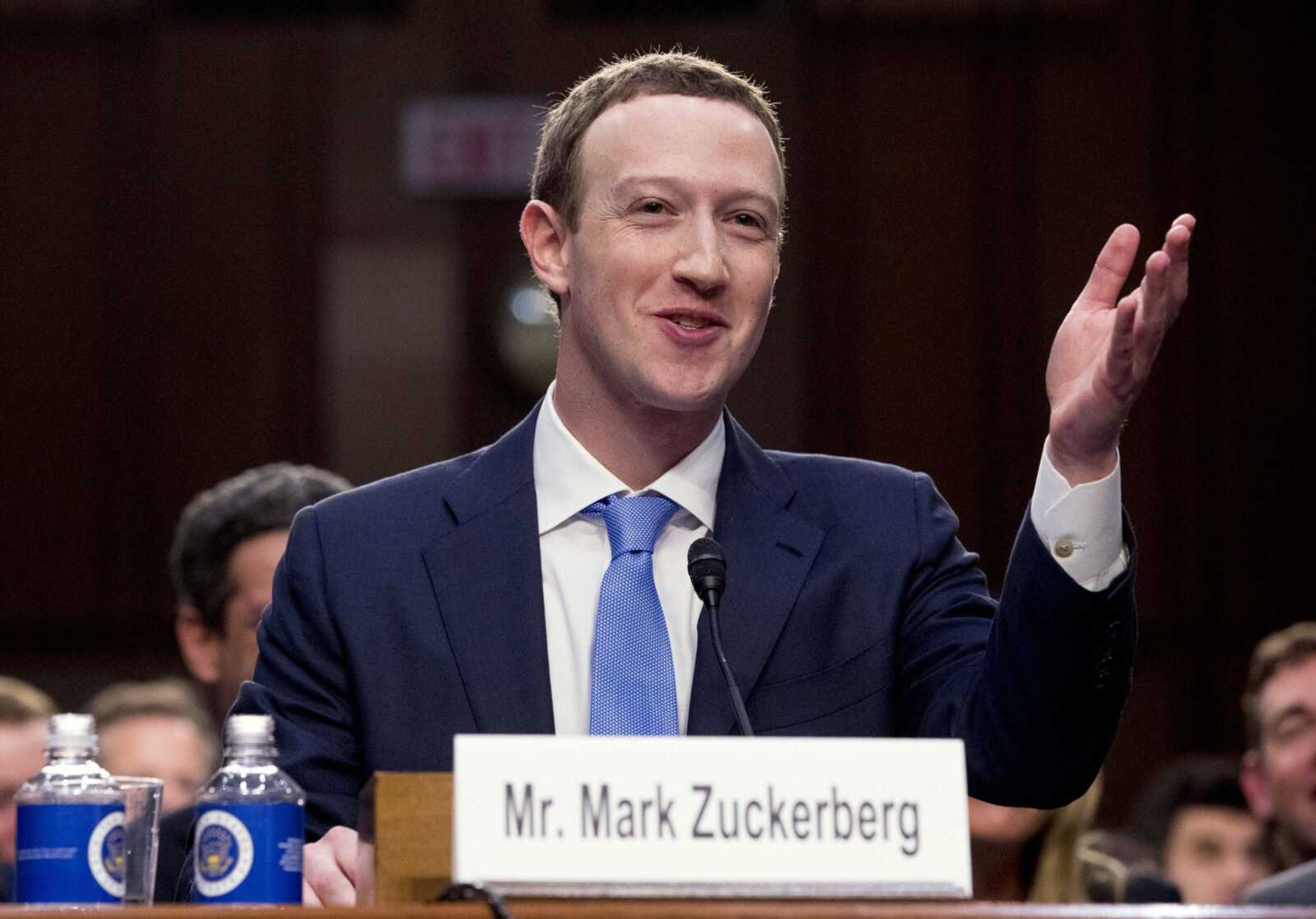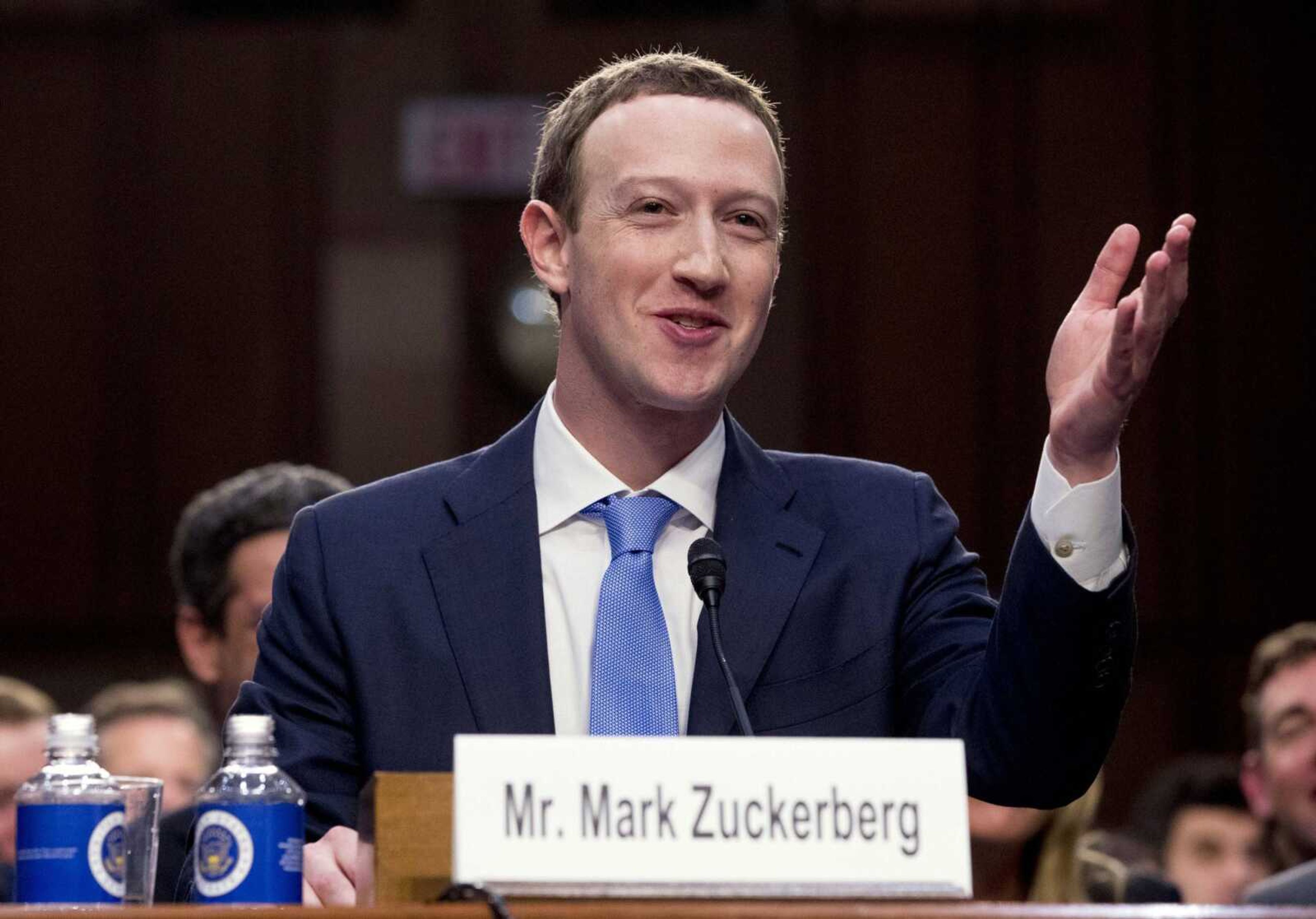Are we Facebook phonies or Zuckerberg zombies?
Are we phonies -- you know, charlatans? It's a horrible thing to even suggest, as "phony" cannot be contorted into anything positive, not even by the most masterful wordsmiths. But is it true? Last week, Facebook co-founder and CEO Mark Zuckerberg was the center of attention, spending Tuesday in a hearing before the Senate's Commerce and Judiciary Committees and Wednesday taking questions from the House Energy and Commerce Committee. ...
Are we phonies -- you know, charlatans? It's a horrible thing to even suggest, as "phony" cannot be contorted into anything positive, not even by the most masterful wordsmiths. But is it true?
Last week, Facebook co-founder and CEO Mark Zuckerberg was the center of attention, spending Tuesday in a hearing before the Senate's Commerce and Judiciary Committees and Wednesday taking questions from the House Energy and Commerce Committee. Facebook has been under fire for selling user data to Cambridge Analytica, a scandal Zuckerberg blames on a researcher. Additionally, Facebook has been criticized for censoring conservative viewpoints in favor of its obvious liberal agenda.
Recent polling has found that a large number of Americans do not trust the social media giant. An Ipsos/Reuters poll concluded that 51 percent of Americans do not trust Facebook "at all" or do not trust it "very much." Also, respondents to a poll The Verge conducted indicated that about 30 percent of Facebook users "somewhat" or "greatly" distrust the way Facebook handles its personal data. The outlet reported that "57 percent of people who weren't on Facebook chose not to be on it because they didn't trust it."

Here's where that question comes in, to be answered by those who are on Facebook -- including me: Are we phonies?
While the issue with user data may be new to some, people have complained for years about Facebook's suppression of certain viewpoints. The Trump-supporting Diamond and Silk duo is the most recent example of conservatives being coined "terrorists" by left-wing "we-know-better-than-you-evil-conservatives" folks. These ladies aren't the only, the first or -- let's be real! -- the last to be thrown into Facebook prison for their politics.
But where do we hear people complaining about Zuckerberg and his multi-billion dollar outfit? On Facebook itself! This is my point. Unlike those who say they stay away from the social media platform because they don't trust it, most Americans aren't staying away at all. They're complaining regularly -- with their phones in their hands or their laptops on their laps as they are locked into that "f" they cannot live without. They're laughing hysterically at that Facebook cat video or creating that Facebook Live. They're logging on the first thing in the morning, and the last memory they have at night is that status "Like" or "Share." They're consumed with something they "greatly" or "somewhat" distrust -- or do not trust "at all."
What sense does this make? If we believe a business, for example, not only does not respect us, but exploits us for its profit, would we continue to shop there? If we don't trust a restaurant in its handling of food, would we eat there? I won't wait for either answer because it's obvious.
Yet many of us cannot help but do what Facebook wants us to do. Perhaps that's it; perhaps we're not so much phonies as we are weak-willed and lily-livered. Could we be addicts who haven't found a way to break free? There's an Alcoholics Anonymous for the alcohol addicted and a Teen Challenge for the drug addicted, but there's no group for the Facebook addicted, those Zuckerberg zombies who have succumbed to his spell -- not yet, anyway.
The Facebook CEO sounded like a seasoned swindler as he spoke to the House and Senate, skirting his way around some questions, metaphorically rubbing lawmakers' bellies during others and, according to Diamond and Silk, lying in his answer to at least one.
I bet he was rather proud of himself, and why wouldn't he be? He is well-aware that outlets, people and pundits will end their next passionate -- and justifiable -- criticism of him and his social media powerhouse by providing a web address accompanied by a phrase that goes something like, "Follow me on Facebook here."
NOTE: To save the reader from Speak Out who is "Counting Ross" some time, I did the math for you this week: Two. You're welcome. It's the least I can do. wink, wink.
Adrienne Ross is owner of Adrienne Ross Communications and a former Southeast Missourian editorial board member. Contact her at aross@semissourian.com.
Connect with the Southeast Missourian Newsroom:
For corrections to this story or other insights for the editor, click here. To submit a letter to the editor, click here. To learn about the Southeast Missourian’s AI Policy, click here.










